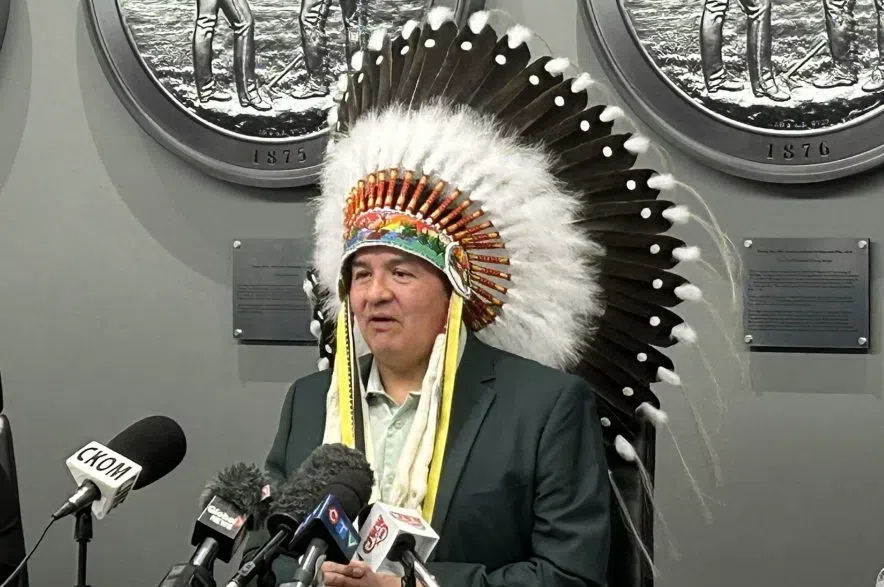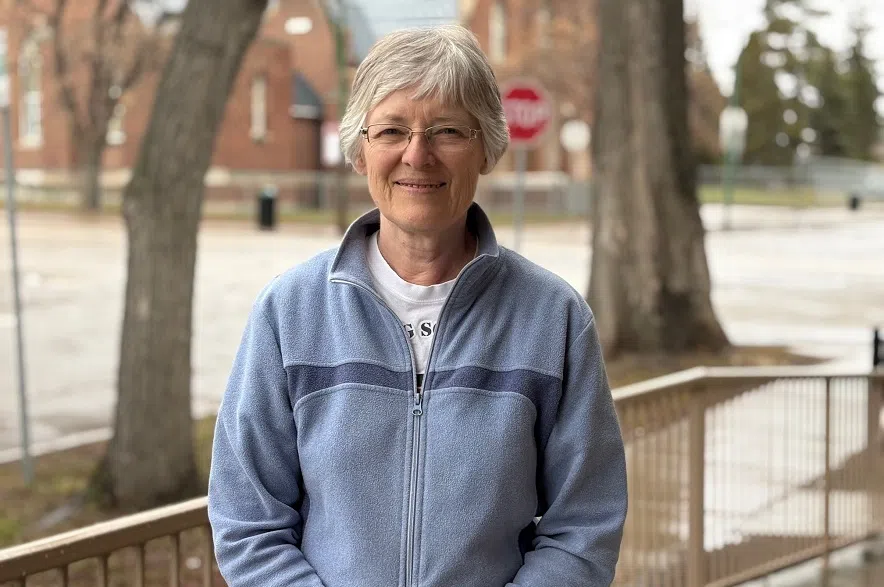Bernice Daratha said Pope Francis will be remembered as a “light to the nations.”
The pope died on Monday at the age of 88, just one day after making his final public appearance at the Vatican on Easter Sunday.
Read More:
- ‘A great pope’: Sask. archbishop says Francis will leave lasting legacy
- ‘Man of compassion:’ Indigenous leaders, residential school survivors on Pope Francis
- ‘Humility, compassion and care for others’: What Canadians are saying about Pope Francis’s legacy
According to the Holy See’s Dicastery for Communication, Francis died of a stroke, “followed by a coma and irreversible cardiocirculatory collapse.”
Daratha, a member of the Company of Saint Ursula in Saskatoon, said there was a “bit of sadness” upon hearing the news of the pope’s death, but she hopes Francis’ legacy will carry on after his death.
Daratha said she admired how Francis lived a simple, humble and “counter cultural” life.
He “reached out to the marginalized, the migrants, the refugees,” she said, and was “always speaking for those suffering from war.”
Francis was a “very compassionate man with a heart for the poor,” she added.
Daratha said the pope’s messages aligned with her own ideas of what the church should be like.
Daratha also reflected on Francis’ visit to Canada in 2022, which saw the pope offer an apology for the church’s role in the residential school system.
“There was a deep hurt there, and to just acknowledge that culture is profound, great (and) is wonderful,” Daratha said.
Looking ahead, Daratha said she hopes the next pope will continue Francis’ mission of healing and reconciliation.
“I would hope that the next pope will also continue the tradition of ecumenical and interfaith relations, going to places where maybe the pope has never been to build relationships with different faith traditions,” she added.
Mark Hagemoen, bishop of the Diocese of Saskatoon, said Francis was always engaging during their meetings.
“We discussed with him, as bishops, a number of difficult issues,” Hagemoen said.
“There was no question that he would not take, and he would analyze it with great intellectual capacity. He would pull apart the nuance of many issues, and he had no problem getting into difficult pastoral issues, and he did so in a very engaging, analytical manner.”
“He didn’t change anything in terms of church doctrine, but he did change the way that popes live and act in many ways,” said Donald Bolen, archbishop of Regina, “and he felt the freedom to do that because his deepest faithfulness was to God, not to the way things had always been done.”
FSIN chief says residential school apology was meaningful
Bobby Cameron, chief of the Federation of Sovereign Indigenous Nations, is reflecting on the legacy of Pope Francis following the pontiff’s death on Monday.
While Cameron was not part of the delegations that met with Pope Francis in Rome or during his 2022 visit to Canada, he said the FSIN sent representatives to both.
“It was a message of faith, hope, prayer, (and) belief. His comments resonate with not just me, but thousands of First Nation leaders across the country when he denounced the repudiation of the doctrine of discovery, which obviously has negatively impacted First Nations for several, several decades,” Cameron said.
Chief Marie-Anne Day Walker-Pelletier represented the FSIN in a meeting at the Vatican. During that visit, she gave the pope a pair of beaded moccasins on behalf of residential school survivors.

FSIN Chief Bobby Cameron said Pope Francis’ comments resonated with “thousands of First Nation leaders across the country when he denounced the repudiation of the doctrine of discovery.” (Shane Clausing/650 CKOM)
“It was a message for the residential school survivors that the healing journey still continues, and that many people, many governments, would never forget that there’s still healing needed in the area of finding the bodies underground, (and) finding closure for all those families who still need closure,” Cameron said.
“In that way, it was a powerful moment in time for the FSIN.”
Cameron also reflected on Pope Francis’ historic apology to Indigenous peoples for the Catholic Church’s role in Canada’s residential school system.
“We were thankful and grateful for that moment in time. Because really, it’s going to be part of the history, right? That the Pope, on this day, apologized for the rape, torture and death that was inflicted on young, young, First Nation children,” he said. “That’s what happened.”
Cameron emphasized that healing for survivors must continue and that governments should follow the pope’s lead.
“Build healing and wellness centers on these very locations where residential schools were built,” he said. “Do not destroy those records that are going to be destroyed in a year or two. Return all those artifacts that were collected over the last several decades to the rightful owners: First Nation people.”
Cameron described Francis as “a man that had compassion and strength and courage.”
“No children of God should be tormented the way First Nation children were tormented, tortured and killed in those terrible places,” he added.
But while Cameron was pleased with the papal apology, he criticized the lack of government inaction afterward.
“Governments turn a blind eye. They act like it never happened or they don’t want to follow through. And that’s where the resistance is right now,” he said.
“It will never be forgotten, no matter how much any level of government tries to eradicate it or forget about it.”
–with files from 650 CKOM’s Alex Brown











